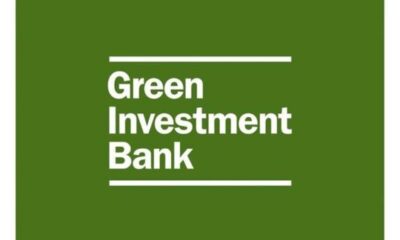Economy
Bank of England ‘happy to discuss’ high-carbon investment issues
The governor of the Bank of England, Sir Mervyn King, has hinted that an investigation into high-carbon investment in the UK may take place, in a response to a letter from a group of green campaigners. Alex Blackburne has the latest.
Sir Mervyn King has stated that the Bank of England would be “happy to meet” a prestigious green group consisting of politicians, academics, scientists, investors and campaigners, who earlier this month sent the Bank an open letter urging it to rethink its reliance on fossil fuel-related investments.
 The governor of the Bank of England, Sir Mervyn King, has hinted that an investigation into high-carbon investment in the UK may take place, in a response to a letter from a group of green campaigners. Alex Blackburne has the latest.
The governor of the Bank of England, Sir Mervyn King, has hinted that an investigation into high-carbon investment in the UK may take place, in a response to a letter from a group of green campaigners. Alex Blackburne has the latest.
Sir Mervyn King has stated that the Bank of England would be “happy to meet” a prestigious green group consisting of politicians, academics, scientists, investors and campaigners, who earlier this month sent the Bank an open letter urging it to rethink its reliance on fossil fuel-related investments.
The letter asked Sir Mervyn to “investigate how the UK’s exposure to high-carbon investments might pose a systemic risk to our financial system and what the options might be for managing this potential threat to our economic security”.
The governor wrote back to the group doubting such a risk existed, but that there was “clearly scope for further evaluation of these issues”.
Quoting from a letter dated February 1st, the Financial Times reported how Sir Mervyn had gone on to write that the Bank “will endeavour to include this in the list of topics we regularly discuss with market participants, to assess whether or not this is a risk of which they are aware and the extent to which they are taking it into account in their investment decisions”.
Three signees of the initial letter to the Bank of England have welcomed the governor’s response.
Dr Aled Jones, director of the Global Sustainability Institute at Anglia Ruskin University, said he “[looks] forward to further engagement” and “[believes] that the criteria identified have already been met or will be met in the near future”.
Meanwhile, Dimitri Zenghelis, senior fellow at the London School of Economics and Political Science’s Grantham Research Institute, said, “The financial system must anticipate the likely transition to a low-carbon, resource-efficient global economy proactively and with its eyes open.
“The last few years have shown vividly the social and economic consequences of underplaying or ignoring obvious mounting risks”.
Paul Ekins, professor of energy and environment policy at the University College London’s Energy Institute, commented on the “cautious” response from the Bank governor.
“It is good that there is to be a follow up meeting at which the issues can be explored in more detail”, he said.
“The important thing is that the issues are not put on the back burner and forgotten about, to come back and bite into share values later: there needs to be a system set up for regular consideration and review”.
At Blue & Green Tomorrow, we recognise the importance for sustainable investment in order to realise a low-carbon economy.
You can help push this shift by advocating this kind of investment yourself. Ask your financial adviser about it or fill in our online form and we’ll connect you with a specialist ethical one.
Picture source: Bank of England


 Environment12 months ago
Environment12 months agoAre Polymer Banknotes: an Eco-Friendly Trend or a Groundswell?

 Features11 months ago
Features11 months agoEco-Friendly Cryptocurrencies: Sustainable Investment Choices

 Features12 months ago
Features12 months agoEco-Friendly Crypto Traders Must Find the Right Exchange

 Energy11 months ago
Energy11 months agoThe Growing Role of Solar Panels in Ireland’s Energy Future





























